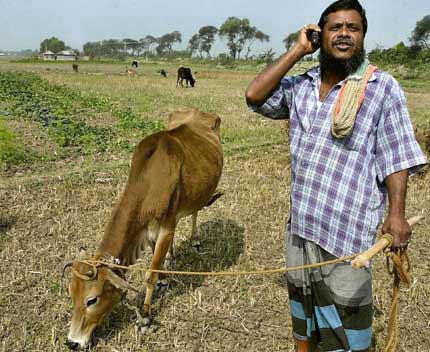The Credit Horizon: Why Kiva's Loan Pooling Matters
The event horizon, the boundary of the region of space-time from which it is not possible to escape, acts rather like a one-way membrane around the black hole… One could well say of the event horizon what the poet Dante said of the entrance to Hell: “All hope abandon, ye who enter here.” Anything or anyone who falls through the event horizon will soon reach the region of infinite density and the end of time.
— Stephen W. Hawking
A while ago, I was lucky enough to hear Kiva’s CEO and founder talk at NESTA. Kiva is a powerful story overshadowed by two things: Kiva simply didn’t see its controversial shift from funding individuals to channelling money to MFIs as material, and secondarily, the similarly sized commercial organisations I’ve worked for turn over many many times Kiva’s volume with a fraction of its publicity and goodwill.
I think these two are intertwined. Commercial money handlers start with the knowledge that they are rationally distrusted by potential customers. They work hard to force transparency into their business models through audits and reporting verifiable information to customers. Charities have the luxury of starting with goodwill. Providing money flows roughly in the right direction, they do not need to make minute accountings for it. There is also a matter of scale in this. A donation is spending, it just goes away. An investment needs to come back. Which leaves Kiva with a big challenge, a $5000 one year loan through Kiva is only a $150 (~3% APR) donation. Kiva is sending $150 to the poor, but has to account back to the rich world for the full $5000.
Moving to the more abstract, the key differentiator of any credit bargain is its event horizon. The surface beyond which accurate risk information becomes impossible to obtain; calculated risk ends, ignorant uncertainty begins. The credit horizon is not a legal point of liability, it is the practical point where external risk assessment breaks down.

In real life, where the ability to assess risk ends is more significant than where any formal legal liability ends. Imagine a local in strange city introducing you to a little coffee shop that needs investment. It is unlikely that this would be wise. But it could be, and there are steps you could take to ensure that this little coffee shop is legitimate and solvent. A stranger who offers to invest your money in local coffee shops at 7 percent is simply not credible, even if he says he will shoulder the entire investment risk.
Or, consider a bond fund versus a portfolio of individual bonds. An managed fund of unknown AAA-rated bonds, should have the same risk as a known random basket of AAA-rated bonds. The reason you might prefer the basket is that it removes the risk of maladministration, or negligence, by the fund manager. The basket the sum of a series of independent small complex risks, where each bond has a credit horizon determined by its issuer’s business risk. The managed fund has a single credit horizon determined by global economic factors, and the integrity of the fund manager.

Treasury Bond

Bond Fund

Private Equity
We could think of credit horizons as surfaces in however many risk dimension our lender and borrower share a perception of. For me, to invest in a computer game production is a smaller, more complex, risk than to lend on an oil well. I understand software, so I can perceive more risk factors, I know nothing about oil. To an oil engineer, the situation would be reversed. To my mother, both risks would be equally uncertain.
The spread of technology has massively reduced the cost of gathering information on business. This shifts the balance against intermediaries towards large numbers of complex risky investments with tight credit horizons.
Coming back to Kiva, their product is a credit bargain, not a lump of money flowing to somewhere in the third world. Practicalities are important, what they are doing with MFIs now is very sensible. But they need to remember that in taking away the direct link they are stripping away their borrower’s ability to build their credit worthiness. They are also removing the lenders ability to apply their own judgement to the investment risk they are taking. And investment flows for profit will always dwarf global aid. I do not know if Kiva is cleverly walking the line between charity and loan broker, or flip-flopping across it in response to business pressures.
There might be a mass of deals to be struck between an rich ageing OECD and an under-developed entrepreneurial south. But I feel these deals will be struck with increasing number of people who are “on the grid” [mobile phones, credit cards, electricity, etc], but still poor.

P.S. Check out PPDai. They’re mostly brokering loans between China’s first and second world.